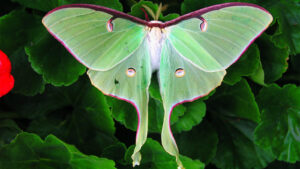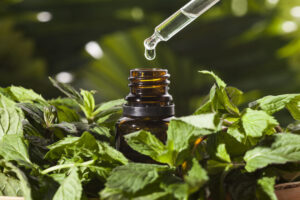
Introduction to Pest Control Solutions
Importance of Pest Control
Pest control is a critical aspect of maintaining a healthy and comfortable living environment in Minnesota homes. Effective pest management helps protect property from damage, prevents the spread of diseases, and preserves the overall well-being of residents to get Pest Control Pittsburgh.
Challenges of Pest Infestations in Minnesota
Minnesota’s diverse climate and natural landscapes create ideal conditions for a variety of pests to thrive. From harsh winters to humid summers, Minnesota experiences seasonal changes that can attract different types of pests throughout the year. These conditions pose challenges for homeowners in managing pest infestations effectively.
Overview of Pest Control Methods
Pest control methods encompass a range of techniques designed to eliminate or manage pest populations. These methods may include chemical treatments, physical barriers, and cultural practices aimed at disrupting pest life cycles and minimizing their impact on homes and surrounding areas.
Common Pests in Minnesota Homes
Insects
Mosquitoes: Mosquitoes are prevalent in Minnesota, especially during the warmer months. Their bites not only cause discomfort but can also transmit diseases such as West Nile virus and Zika virus.
Boxelder Bugs: Boxelder bugs are nuisance pests that often invade homes in large numbers, seeking shelter during the colder months. While they do not pose significant health risks, their presence can be bothersome to homeowners.
Spiders: Spiders are common in Minnesota homes and play a beneficial role in controlling other insect populations. However, certain species, such as the brown recluse and black widow, can be venomous and pose risks to humans.
Rodents
Mice: Mice are adept at finding their way into homes, seeking warmth and food sources during the winter months. They can cause damage to property and transmit diseases through their droppings and urine.
Rats: Norway rats and roof rats are two common species of rats found in Minnesota. These rodents can cause extensive property damage and pose health risks through the transmission of diseases such as leptospirosis and hantavirus.
Squirrels: Squirrels are often considered nuisance pests when they invade attics and crawl spaces in search of shelter. They can cause damage to insulation, wiring, and structural components while nesting.
Wildlife
Raccoons: Raccoons are intelligent and adaptable animals that can cause damage to homes and property. They are known to raid garbage cans, tear off shingles, and create nests in attics.
Skunks: Skunks are notorious for their defensive spray, which can cause unpleasant odors and irritation. They may dig up lawns and gardens in search of food, causing damage to landscaping.
Bats: Bats play a vital role in the ecosystem but can become a nuisance when they roost in attics and other structures. Their droppings, known as guano, can accumulate and create unsanitary conditions.
Integrated Pest Management (IPM) Techniques
Inspection and Identification
The first step in effective pest management is conducting a thorough inspection of the property to identify pest species, entry points, and conducive conditions. This allows homeowners to develop a targeted pest control plan tailored to their specific needs.
Prevention and Exclusion
Preventive measures such as sealing cracks and gaps, repairing screens, and eliminating food and water sources can help deter pests from entering homes. Exclusion techniques such as installing door sweeps and sealing foundation vents can further reduce the risk of pest infestations.
Treatment and Monitoring
In cases where pests are already present, targeted treatments such as baits, traps, and insecticides may be used to eliminate infestations. Regular monitoring is essential to assess the effectiveness of pest control measures and make necessary adjustments to ensure long-term success.
Eco-Friendly Pest Control Solutions
Natural Repellents and Deterrents
Natural repellents such as essential oils, botanical extracts, and diatomaceous earth can help repel pests without posing risks to humans, pets, or the environment. These eco-friendly alternatives are often used in conjunction with other pest control methods for enhanced effectiveness.
Biological Controls
Biological controls involve the use of natural enemies such as predatory insects, parasitic nematodes, and microbial agents to regulate pest populations. These biological agents target specific pests and can help reduce reliance on chemical pesticides.
Habitat Modification
Modifying the habitat to make it less hospitable to pests is an effective eco-friendly pest control strategy. This may involve removing debris and clutter, maintaining proper sanitation, and implementing landscaping practices that discourage pest activity.
Hiring Professional Pest Control Services
Importance of Professional Expertise
While DIY pest control methods can be effective for minor infestations, severe or recurring pest problems often require the expertise of professional pest control services. Pest control technicians have the knowledge, experience, and tools necessary to identify and address pest issues effectively.
Considerations When Choosing a Pest Control Company
When selecting a pest control company, homeowners should consider factors such as reputation, licensing and certification, and service offerings. Reading reviews, obtaining multiple quotes, and asking for references can help homeowners make informed decisions.
Benefits of Regular Pest Control Maintenance
Regular pest control maintenance provides ongoing protection against pests and helps prevent infestations before they occur. Scheduled treatments, inspections, and preventive measures can save homeowners time, money, and stress in the long run by minimizing the risk of pest-related damage and health hazards.
In conclusion, effective pest control solutions are essential for maintaining pest-free homes in Minnesota. By understanding common pests, implementing integrated pest management techniques, and utilizing eco-friendly pest control methods, homeowners can protect their property and ensure a safe and healthy living environment for themselves and their families. Whether facing insect invasions, rodent infestations, or wildlife encounters, proactive pest management strategies are key to achieving long-term pest control success.





